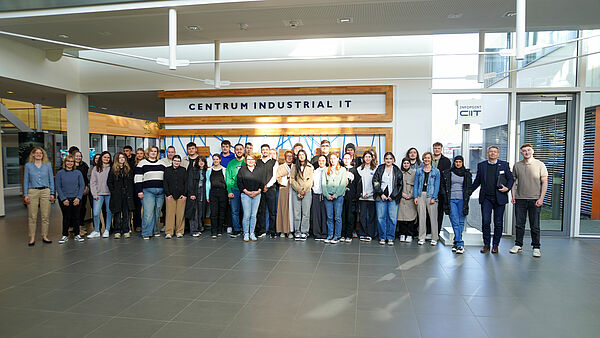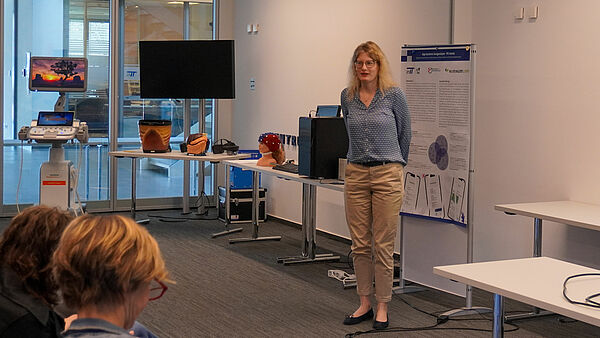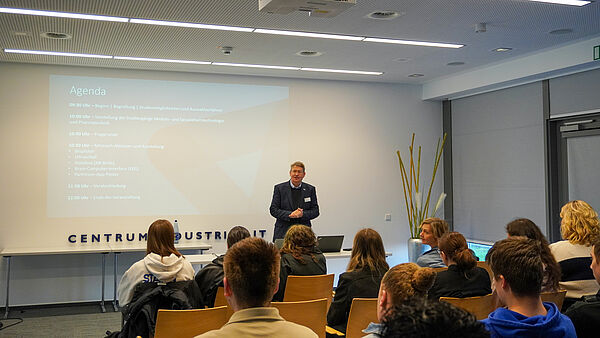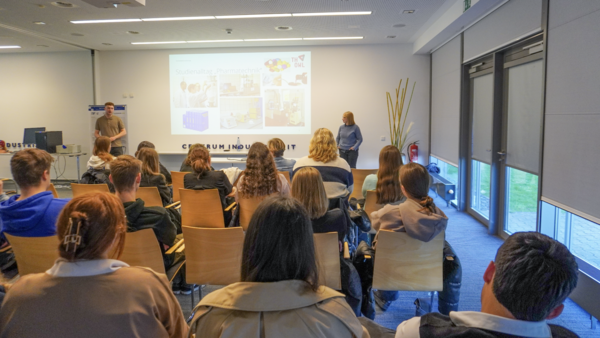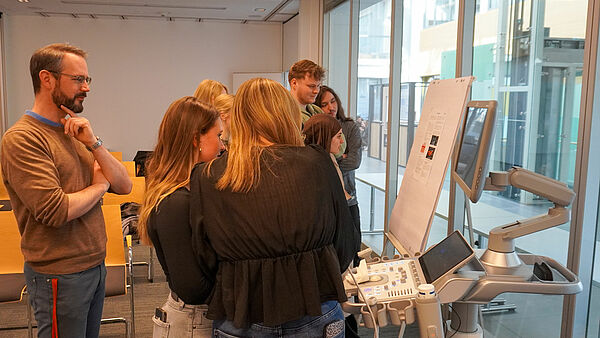On 2 April 2025, the Institute Industrial IT (inIT) and the Applied Health Science (AHS) research cluster of the Technische Hochschule Ostwestfalen-Lippe (TH OWL) welcomed around 50 pupils to the Innovation Campus Lemgo. Classes from the vocational grammar school for health and social work at Lüttfeld-Berufskolleg and the advanced vocational school for engineering technology at Felix-Fechenbach-Berufskolleg took part.
Insights into the diverse range of degree programmes at TH OWL
The information event was organised for the second time by Frauke Wiegräbe, research assistant in the Image Processing and Pattern Recognition, Sensor and Information Fusion group at inIT under the direction of Prof. Dr. Volker Lohweg. The aim was to present study opportunities and contents at the TH OWL - in particular the interdisciplinary study programmes 'Medical and Health Technology' and 'Pharmaceutical Engineering'.
After a welcome by Frauke Wiegräbe, Prof. Dr. Volker Lohweg presented the different locations of TH OWL and the wide range of courses on offer.
First-hand student insights
Patrick Gaudl, a student in the Medical and Health Technology bachelor programme and student assistant in the Image Processing and Pattern Recognition, Sensor and Information Fusion group, gave a first-hand account of student life. In addition to information about courses, internships, projects and excursions, he also gave a personal insight into life on campus.
His contribution to two app developments that support patients with Parkinson's or after a stroke with their therapy met with particular interest. These projects were realised in cooperation with the University Hospital OWL and the Parkinson's network PNOWL+.
Research for the medication of tomorrow
Tatjana Brasu, research associate in the AHS research cluster, introduced the 'Pharmaceutical Engineering' programme, which is headed by Prof. Gerd Kutz. Today, all patients with a particular disease are often treated with the same medication, but in the future, medication will be produced that are individually tailored to meet specific needs - a vision that aroused great interest among the students.
Future opportunities for graduates
Both Patrick Gaudl and Tatjana Brasu emphasised the excellent career prospects for graduates of both degree programmes. Employment opportunities range from clinics and healthcare facilities to medical technology companies and the pharmaceutical industry. The close integration of theory and practice as well as current research projects create the best conditions for a successful career start in a growing field of the future.
From theory to practice: interactive future technologies
After the presentations, the students were able to try out modern medical and healthcare technologies for themselves - including an ultrasound device, an EEG measurement system and two Hololens glasses. Tatjana Brasu also offered a short excursion into the InnovationSPIN, where the 3D bioplotter, which is currently being researched for individualised medication, took centre stage.


